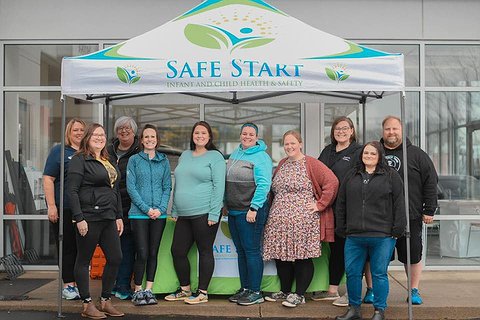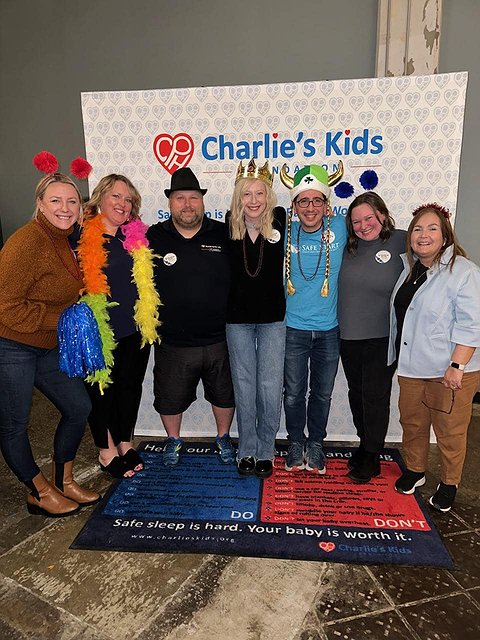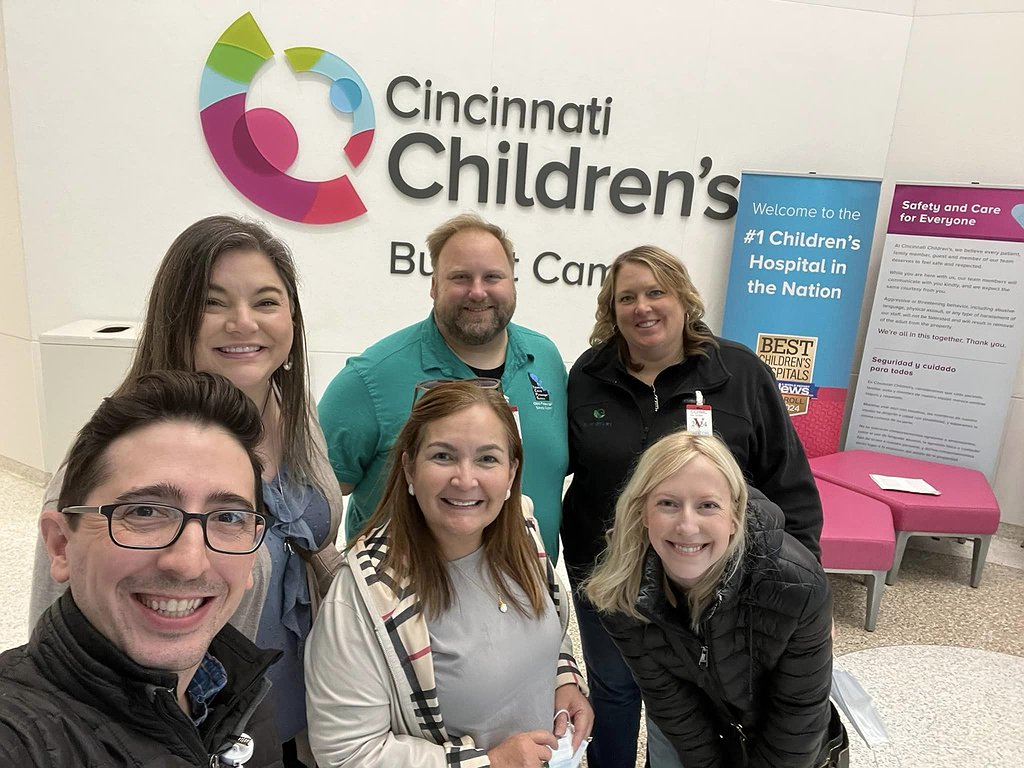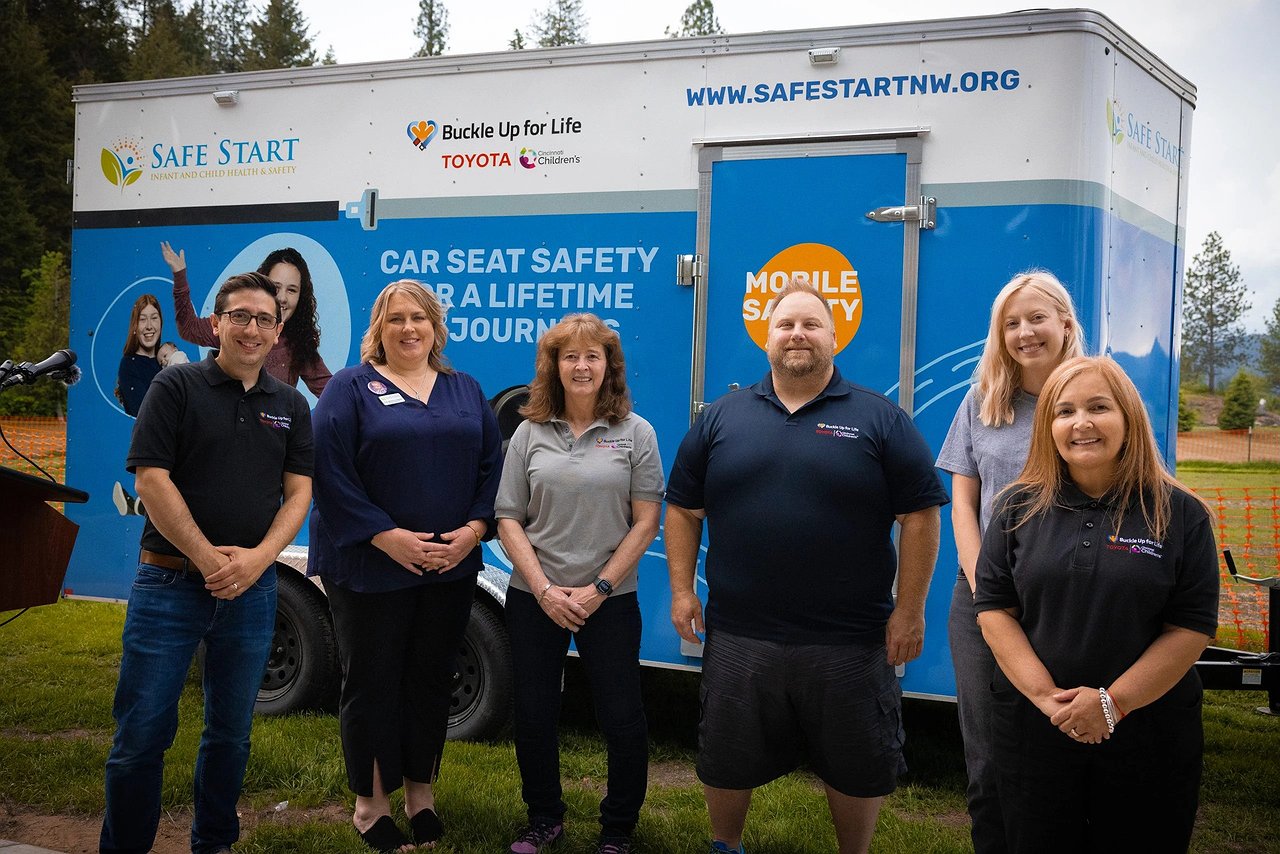FAST FIVE Child safety is No. 1 for Brian Rauscher
Meet Brian Rauscher, who has lived in the Coeur d'Alene area since 1997.
Brian has a bachelor's in petroleum engineering from the Montana Tech of the University of Montana and has dabbled in engineering, entrepreneurship and nonprofit work. Brian finally found his passion, working with and advocating for the health and safety of children, while working in the foster care system. Brian, alongside his partner, Liz Montgomery, founded Inland Northwest SIDS Foundation, now Safe Start, in February of 2012 in honor of her infant son, Mason, who died in 2003. Brian now works full time in prevention education to ensure all children are able to reach their first birthday and beyond, free from accidental death or injury.
1) Why are you so passionate about Safe Start and the services you provide to our community?
Safe Start began as my partner's passion project. Teaching families about safe infant sleep is her life's mission and I was able to help out. Seven years ago, we began to add other injury prevention services as we saw the need arise in our community. When we added our child passenger safety program, I truly found my life's passion. I think the displaced engineer in me was stimulated by all of the design and engineering that went into car seats. At the same time, I was able to continue working to ensure that all children, regardless of the situation they're born into, had the same chance to grow up and do amazing things.
All of the services that we provide at Safe Start — our entire slate of prevention education classes, all of our safety resources, new safe cribs and car seats — are always provided free of charge to any family. We know that with proper education and access to safe resources we can significantly decrease the likelihood that a child will suffer a sleep- or car crash-related death. That's what we're all about at Safe Start: education, and then ensuring families have the resources they need to keep their children safe.
2) What are some top safety tips you can share with us regarding child and infant safety, in cars and in cribs?
The amazing thing about car seat and sleep safety is that it's really very simple. If you follow the ABCs of Safe Infant Sleep — Alone, Back, Crib — and ensure your baby sleeps alone, on their back in their own crib (or other safe sleep environment), you can rest easy knowing that your baby can sleep safely. Problems arise when we start adding blankets, toys, pets, siblings or really anything else in the crib. Anything in the crib except your baby, their sleepsack and a tight-fitted crib or pack-and-play sheet is simply a strangulation or suffocation hazard. At Safe Start, we review a lot of infant sleep-related deaths each year. It's almost unheard of for us to review a death where parents or caregivers followed the ABCs.
As far as child passenger safety goes, that's easy as well. I would highly encourage any parent or caregiver to carve out 30 minutes to read their car seat manual. Sure, it's not a juicy medieval romance novel, but it's one of the most important books you can read. In Coeur d'Alene, we see about an 85% misuse rate. That means 85% of the parents or caregivers we see at our office have at least one thing wrong that we are able to fix, and most have more than one. A properly installed car seat can reduce the risk of death or serious injury by up to 82%, so it's really important that we get it right.
And my top safety tip is to come see us at Safe Start for a personalized car seat check tailored for your specific child, vehicle and seat. You can also take our online safe sleep class and more through our website, safestartnw.org.
3) What are a few long-term goals you and your team have?
One of the long-term goals we have at Safe Start is to continue to grow our Rural Education Outreach (REO) program. Our REO program is designed to provide easy access to our prevention education program and safety resources to rural communities throughout Idaho, western Montana and eastern Washington. We currently serve 24 rural communities with our Buckle Up for Life Mobile Safety Lab, providing easy access to education and resources to families right in their own communities. Over the next few years, we are looking forward to our Safe Start supported Safety Stations coming on and beginning to serve their own communities.
Our REO program has been incredibly successful locally and has been receiving national attention from many different directions. Our program has been profiled in Safe Ride News, the national child passenger safety newspaper, and we've been featured in an article on the Department of Health and Human Services Rural Information Hub website among other national articles and interviews. Over the past year we've presented at national injury prevention conferences in Madison, Wis., Denver, Colo., and Orlando, Fla.
We are currently working with multiple agencies across the United States in an advisory capacity as they begin working to replicate our unique program and its successes.
4) What is something people would be surprised to know about you?
I recently took up the hobby of Uber driving! As a 48-year-old male, I'm currently smack in the middle of my mid-life crisis and recently decided I need a sports car. Liz thinks otherwise. So, I took up Uber driving to make a little money toward my goal. I have only been driving for about two weeks, but I really am enjoying it. It's turned into my new hobby.
I haven't had any children passengers yet, but you can be sure when I do, their car-seat installs will be on point!
5) Are there any safety myths you can help dispel when it comes to childhood injuries?
The first is that bad things only happen to "other people" or that bad things don't happen to "good people." Since working with Safe Start, I can tell you that bad things do happen, all the time, and they do happen to some amazing people. Childhood injury or death doesn't discriminate and just because it's rare doesn't mean it can't happen to you.
That's why we're here. With our prevention education classes, all taught by incredible, world-class instructors and free access to safety resources, new car seats and cribs to families in need, we can ensure your child is as safe as possible while sleeping and while riding in the car.
The second one concerns seasoned parents and grandparents. We often hear, "Well that's how we did it and all my kids survived." That may be true, but there's a lot of children from that time that didn't. Confirmation bias can be a dangerous thing.
We tell parents as we learn more we do better, that's why babies slept on their side in the '70s and now they sleep on their backs. It's never too late to learn new information and adjust beliefs and behaviors.









